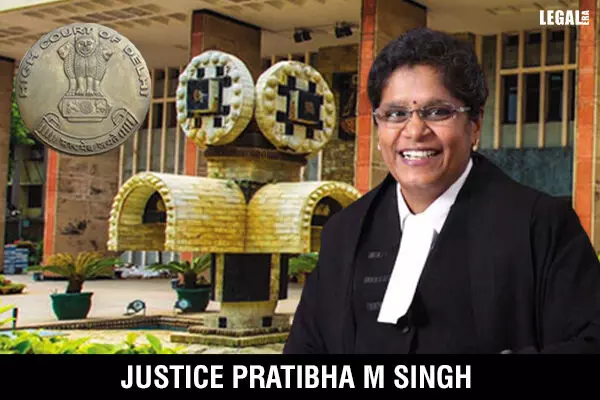- Home
- News
- Articles+
- Aerospace
- AI
- Agriculture
- Alternate Dispute Resolution
- Arbitration & Mediation
- Banking and Finance
- Bankruptcy
- Book Review
- Bribery & Corruption
- Commercial Litigation
- Competition Law
- Conference Reports
- Consumer Products
- Contract
- Corporate Governance
- Corporate Law
- Covid-19
- Cryptocurrency
- Cybersecurity
- Data Protection
- Defence
- Digital Economy
- E-commerce
- Employment Law
- Energy and Natural Resources
- Entertainment and Sports Law
- Environmental Law
- ESG
- FDI
- Food and Beverage
- Gaming
- Health Care
- IBC Diaries
- In Focus
- Inclusion & Diversity
- Insurance Law
- Intellectual Property
- International Law
- IP & Tech Era
- Know the Law
- Labour Laws
- Law & Policy and Regulation
- Litigation
- Litigation Funding
- Manufacturing
- Mergers & Acquisitions
- NFTs
- Privacy
- Private Equity
- Project Finance
- Real Estate
- Risk and Compliance
- Student Corner
- Take On Board
- Tax
- Technology Media and Telecom
- Tributes
- Viewpoint
- Zoom In
- Law Firms
- In-House
- Rankings
- E-Magazine
- Legal Era TV
- Events
- News
- Articles
- Aerospace
- AI
- Agriculture
- Alternate Dispute Resolution
- Arbitration & Mediation
- Banking and Finance
- Bankruptcy
- Book Review
- Bribery & Corruption
- Commercial Litigation
- Competition Law
- Conference Reports
- Consumer Products
- Contract
- Corporate Governance
- Corporate Law
- Covid-19
- Cryptocurrency
- Cybersecurity
- Data Protection
- Defence
- Digital Economy
- E-commerce
- Employment Law
- Energy and Natural Resources
- Entertainment and Sports Law
- Environmental Law
- ESG
- FDI
- Food and Beverage
- Gaming
- Health Care
- IBC Diaries
- In Focus
- Inclusion & Diversity
- Insurance Law
- Intellectual Property
- International Law
- IP & Tech Era
- Know the Law
- Labour Laws
- Law & Policy and Regulation
- Litigation
- Litigation Funding
- Manufacturing
- Mergers & Acquisitions
- NFTs
- Privacy
- Private Equity
- Project Finance
- Real Estate
- Risk and Compliance
- Student Corner
- Take On Board
- Tax
- Technology Media and Telecom
- Tributes
- Viewpoint
- Zoom In
- Law Firms
- In-House
- Rankings
- E-Magazine
- Legal Era TV
- Events
Delhi High Court: Customers of Bank Have No Way of Contacting Officials Who Send Computer Generated Emails

Delhi High Court: Customers of Bank Have No Way of Contacting Officials Who Send Computer Generated Emails
The Delhi High Court while hearing a contempt plea in the matter of Sarwar Raza vs. Ombudsman RBI and another voiced its concern over the computer-generated e-mails sent by Citibank to its customers without the mention of contact details of officials under whose instructions they were generated and sent.
The Contempt plea was filed by a Citibank customer, Sarwar Raza, alleging violation of the order dated 5th December, 2022 passed in his plea filed in 2022.
The customer had appeared before the court to sought for a refund of Rs. 76,777 which was debited from his credit card for a transaction that was not carried out by him. The Court while issuing notice in the plea, had restrained the bank from taking any coercive steps against him in the meantime.
In the contempt plea, the petitioner submitted that despite the court order, he received a demand notice on 2nd January from the bank reflecting total outstanding amount of Rs.1,00,972 which included late payment fee and the interest charges. An email was also received on 13th January which stated that the petitioner's credit card would be closed soon.
Mr. Sanjeev Sindhwani, ld. Sr. Counsel appearing for Citibank submitted that the bank does not have any intention to violate the judicial orders and was willing to tender an unconditional apology. It was also submitted that the bank is willing to reverse all the charges imposed on the petitioner.
The single judge Justice Pratibha M Singh referred to its previous order dated 10th February where concerns were expressed regarding the difficulty faced by customers to contact the concerned bank official since none of the communications contained details of any individual who could be held responsible.
The Court remarked, "concerns are to the effect that, when the computer-generated e-mails are sent to the customers, they have no way of contacting the officials concerned, under whose instructions the said e-mails have been generated and sent. These issues plague banking customers across the industry. Hence, this Court is of the opinion that there ought to be some accountability when emails are sent in this manner."
Observing that there ought to be some accountability of bank officials, the Court sought response of the bank on the following aspects:
i) Whether in the e-mails issued by Citibank to all its customers, the names of the officials concerned along with the e-mail ID of the said officials can be inserted, in order to ensure the accountability of the Bank officials.
ii) Insofar as the changing of registered mobile numbers etc. is concerned, what is the process of verification that is undertaken before the registered mobile numbers can be changed. Inasmuch as if a registered mobile number is changed, it could also lead to severe misuse of the credit card or other net banking services.
iii) The helplines in Citibank and the manner in which they are managed.
iv) The manner in which the collection agents are being appointed for the purposes of collection of outstanding charges/amounts from customers.
The court directed that a Senior Official handling the matter shall join the proceedings on 11th April, the next date of hearing physically, adding that other officials may also join virtually.


